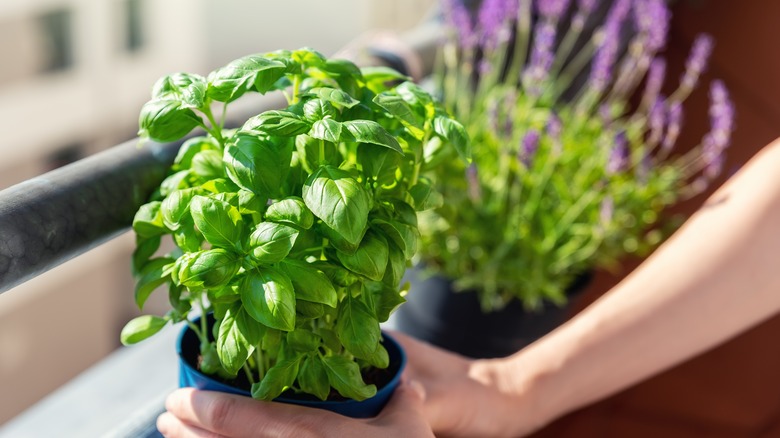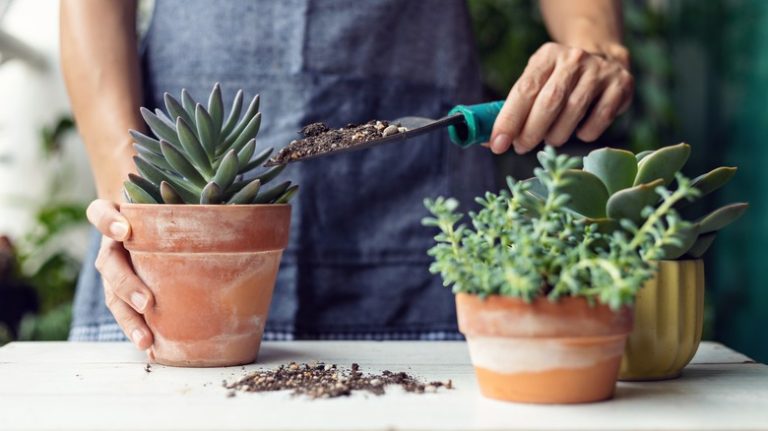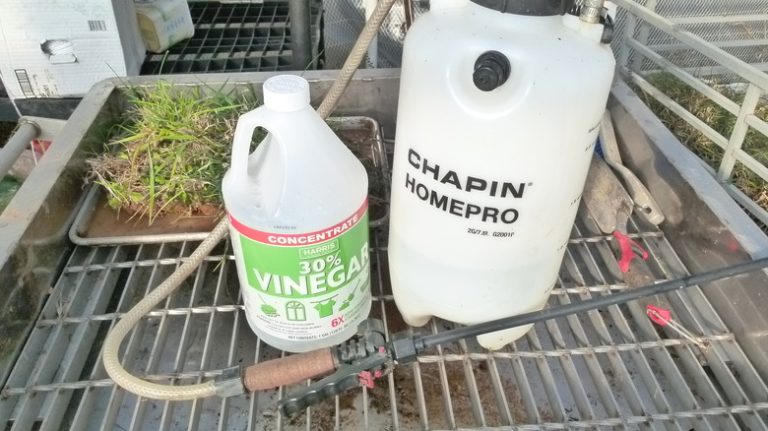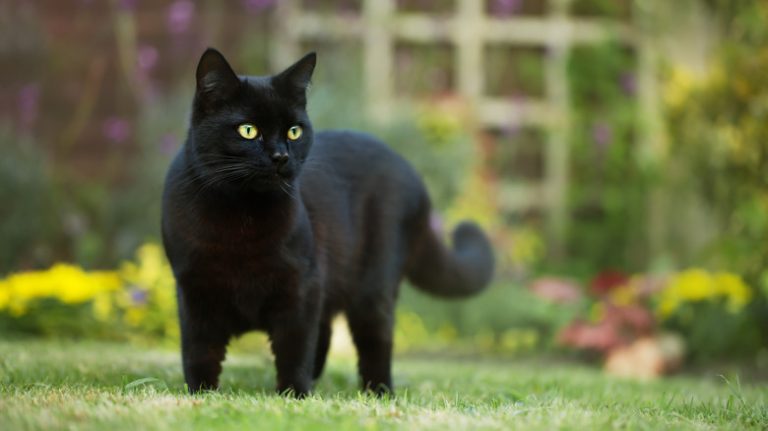Whether you have kids or pets playing in your garden, or you love to invite guests around for food and drinks on your patio, having to deal with wasps in your yard can be stressful. Luckily, there are a number of plants that you can grow in your garden to keep them away. In fact, there are plenty of easy-to-grow herbs and strong-scented flowering plants like mint and marigolds that will act as natural insect repellents, helping to clear your outdoor space of pests so that you and your family can relax and enjoy it instead.
Wasps only tend to get aggressive when they are being territorial near their nest or acting in defense under threat of attack. An unexpected sting may be painful but isn’t generally dangerous unless the toxins lead to an allergic reaction. Stings can often be avoided by simply standing still. However, any sign of threat — like waving or batting them away — can provoke a wasp to attack. If you don’t have kids or pets, wasps may not be a threat, but they can still be a nuisance around sweet drinks and food. So designing a garden with plants they hate — like the ones listed below — is a great idea. Here is how to spruce up your landscaping with pest control in mind.
Utilize common kitchen herbs
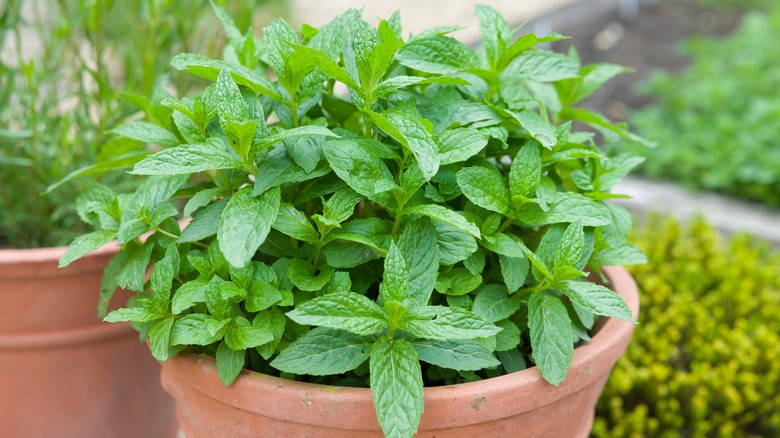
Growing a wide range of common kitchen herbs in your garden can help to keep it wasp-free. Peppermint, basil, and thyme are just a few highly aromatic herbs that will release their essential oils and repel wasps in the nearby area. That’s because their strong odor overpowers the pests’ sense of smell, convincing them to fly in the opposite direction. They use their acute smell receptors in their antenna to figure out where their next meal is, and they’re so strong that wasps have an even keener sense of smell than dogs. Because of that, overly fragrant herbs will deter them away. Just make sure you choose ones that are either savory, earthy, or citrus-smelling, since wasps are attracted to sweet scents.
However, keep in mind that the herb’s smell is multiplied when the leaf is crushed. So, if you have an annoying wasp buzzing around your table that just won’t leave, reach over and crush a few leaves from your basil or lemongrass plant. The scent will become more pungent and repel it away.
Marigolds act as a natural bug repellent
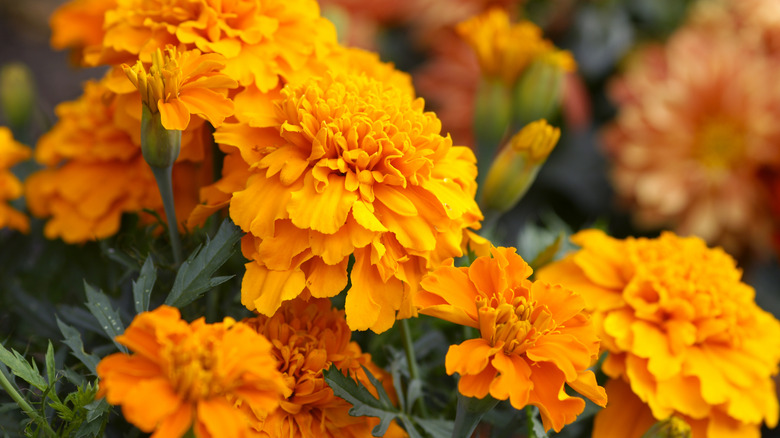
If you’re in need of a punchy little border plant for your vegetable garden that will double up as a general pest repellent and help to get rid of pesky wasps from your garden, you can’t go wrong with marigolds. That’s because they give off the potent, spicy aroma you need in order to get rid of these stinging bugs. Specifically, these cheerful blooms have an essential oil called thiophene, which acts as a natural repellent. However, not all marigolds are created equally. The French and African varieties have more thiophene than others, with the French ones being the most potent. So, if you have a persistent wasp problem in your area, you will find the most success planting the French version in your yard.
These pretty annuals are also perfect for planting in pots, which you can position strategically around your garden in the places where wasps annoy you the most — like near your kitchen window or around your garden table where you like to have a cool drink and enjoy the afternoon sun.
Deter wasps with potted eucalyptus
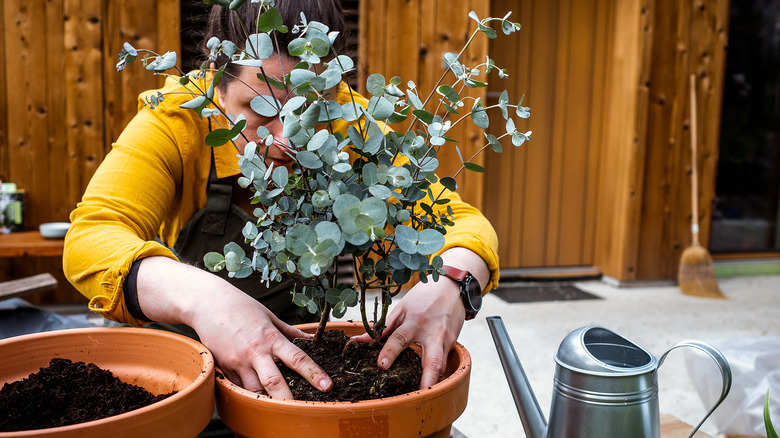
Sanjeri/Getty Images
Eucalyptus is a popular low-maintenance ornamental tree known for its aesthetic silver-green leaves and bleached white bark. They will not only add a stylish pop to your garden but also do a great job of deterring wasps, which don’t like their strong, unmistakable scent. The menthol aroma is too overpowering for them and will irritate their scent receptors, so they won’t want to hover in the area.
Buy one or two small potted eucalyptus trees from your local garden center and position them strategically around your outdoor seating area. Then, enjoy the fresh minty fragrance with your guests while keeping the space wasp-free. Dwarf and medium-sized species are the best types for growing in pots, as eucalyptus tends to be a fast-growing tree. It’s also easier to protect a potted eucalyptus during freezing cold winters because you can move them into greenhouses or indoors.
Wasps will bolt from bitter wormwood
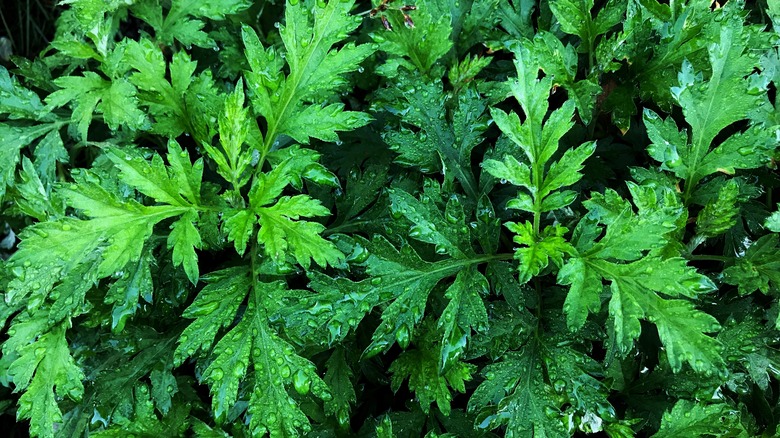
beru4ng/Shutterstock
Wormwood, also known as mugwort, has a slightly herbaceous and bitter scent that is effective at repelling wasps. Because it grows very large, you can plant it as a border plant in your garden to act as a barrier and deterrent to annoying wasps. It’s such an effective repellent because it contains absinthe, which is a natural insecticide. When wasps fly nearby, the scent alerts them of the danger, and they head in the other direction out of self-preservation.
However, there are a few caveats to keep in mind before planting it in your yard. First, you don’t want to grow it near your vegetable patches or fruit trees. That’s because wormwood is a poor companion plant for edible gardens due to its absinthe. It washes off into the dirt each time it rains and can stunt the growth of surrounding veggies and fruits. Additionally, the plant is highly toxic to dogs and cats, so use caution if you allow your pets outside unsupervised.
Lemongrass attacks their nervous systems
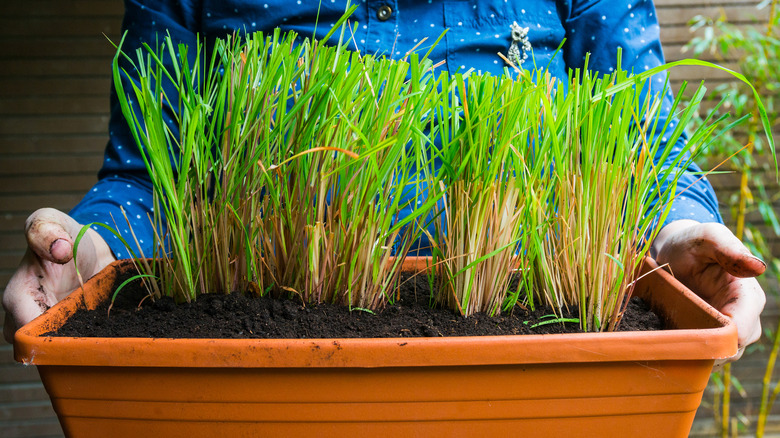
Travel_Master/Shutterstock
You might love the smell of lemongrass in your garden, but wasps hate it. That’s because it has citral and geraniol, which are compounds that overpower their senses, causing them to leave the area. Much like how you leave a room that’s too heavily perfumed, wasps head in the opposite direction when lemongrass is wafting. It can also attack their nervous systems, so it might also signal danger for them. This is why some natural anti-wasp sprays, such as STEM Bug Killer Spray, use lemongrass as the main ingredient to repel these annoying pests.
It looks like grass but grows best in containers, which is ideal because it means you can move them around, placing them in your garden where you need them the most — like wasp hotspots! This also allows you to bring it inside during the winter. While it’s a perennial, it can only survive winters in USDA zones 8b and 9, so you will need to bring it inside if you want to cultivate it yearly.
Pennyroyal is a centuries-old method
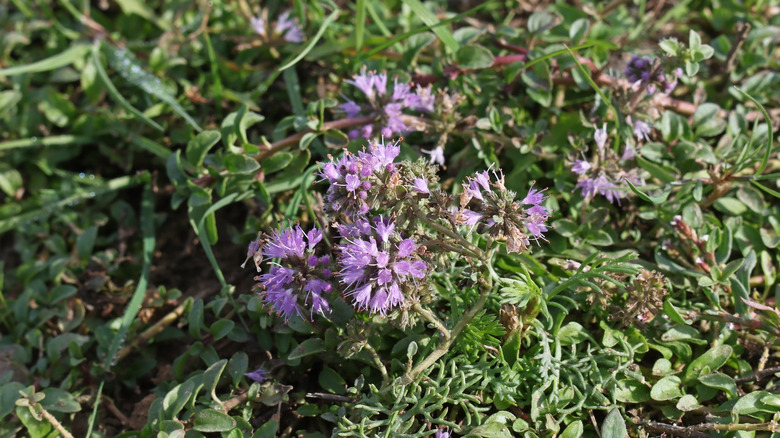
Stephane Etienne/Getty Images
Early colonists used to grow pennyroyal around their homes to keep all sorts of troublesome pests away, so why not use this tried-and-true garden hack to deter wasps from your garden? This groundcover plant lets off a strong menthol scent that you will most probably love but wasps and other insect pests will detest. Its pungent odor confuses them, signaling danger and making them head in the opposite direction.
There are two types of pennyroyal varieties you can choose from: American and European. The European one has a stronger scent — especially when you crush the flowers between your fingers, releasing their oils — so that would be better to plant if you want a strong forcefield. However, keep in mind this is part of the mint family, which means it can quickly become invasive. Make sure to plant them in pots in order to keep them from spreading all over your yard. They are also toxic if ingested, so keep that in mind if you have small kids, dogs, or cats you let out into the backyard.
Red geraniums act like bug spray
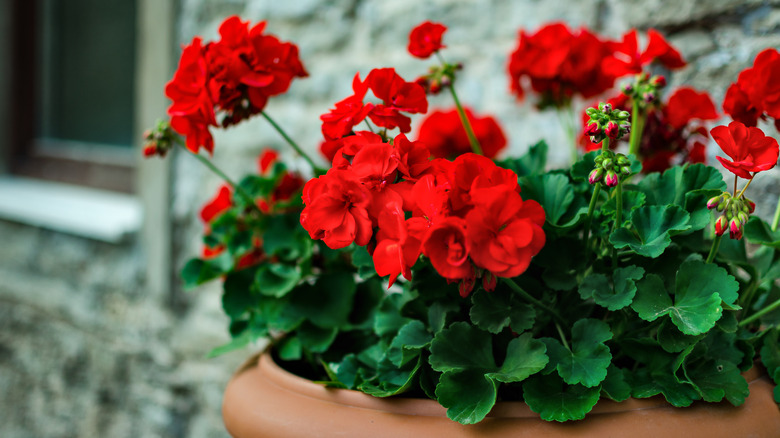
Mayaafzaal/Getty Images
Red geraniums in particular are very effective at repelling these stinging pests. They have a strong scent that wafts into the air, and it’s the molecules in this perfume that drive wasps away. These cheerful blooms carry citronellol, which is a common wasp deterrent. It also naturally occurs in lemongrass, which was mentioned above, and is the main active ingredient in citronella candles and sprays, which are products you can buy to keep these troublesome bugs away from your patios or decks. However, you can achieve similar results by planting a couple of geraniums in places they seem to buzz the most.
The majority of geraniums are annuals, which means you will need to replant them each year. They’re a classic option as border plants in garden beds, or you can put them in pots and strategically place them around your patio or near your grill.

